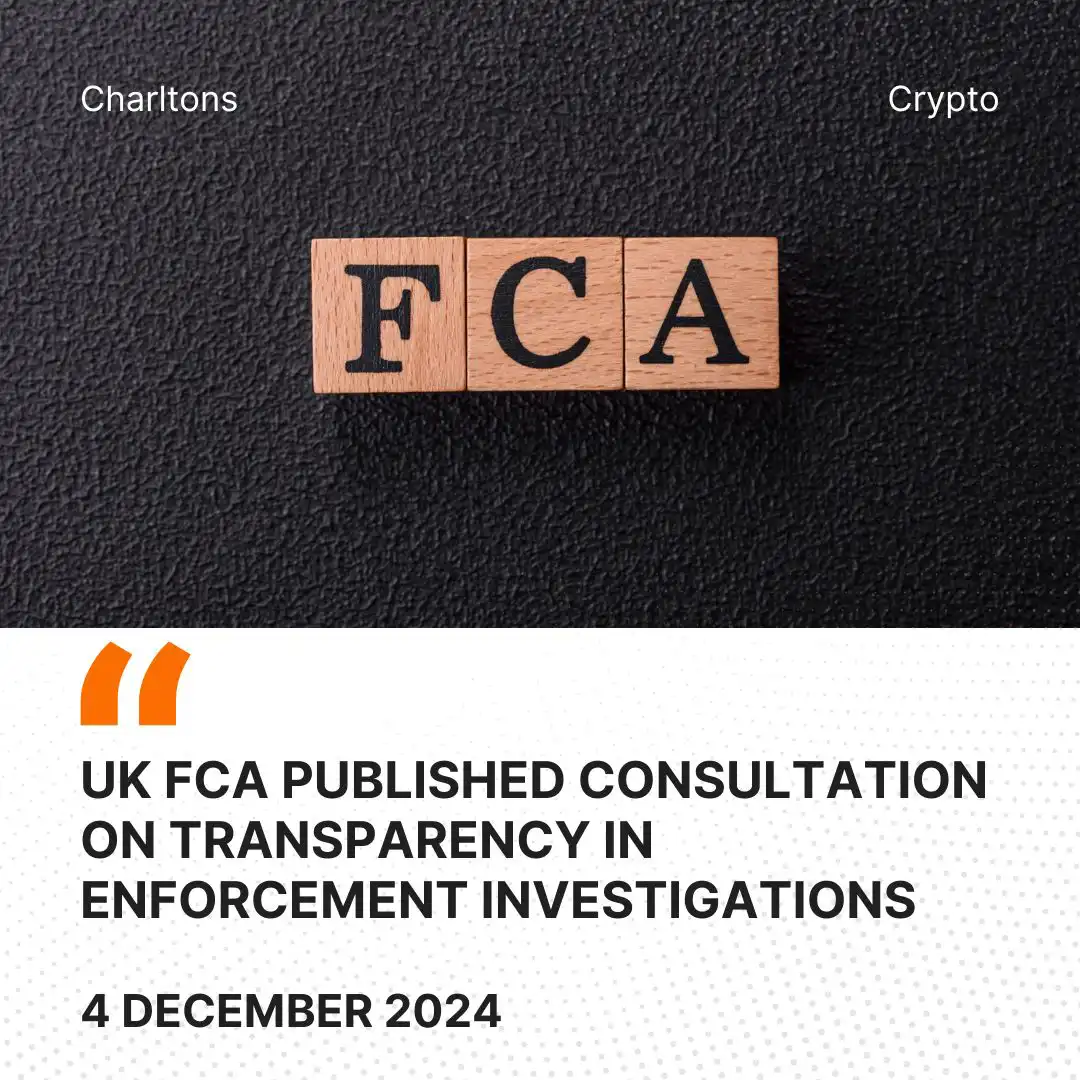
On 28 November 2024, the United Kingdom’s Financial Conduct Authority (UK FCA) issued a follow-up consultation paper to refine its approach to enforcement transparency, building on earlier proposals made in February 2024. The updated consultation outlines amendments and changes aimed at enhancing public confidence in regulatory processes while addressing concerns raised by regulated firms and other stakeholders. The UK FCA is the principal financial regulatory body in the United Kingdom, overseeing conduct across a spectrum of financial services including cryptoassets. The proposed changes are aimed at increasing transparency and fairness in enforcement investigations.
The updated consultation, a continuation of the proposals first set out in February 2024, integrates feedback received from stakeholders which includes assessing the potential impact on the relevant firm as part of the UK FCA’s public interest test when deciding whether to announce an investigation. The UK FCA has proposed extending the notice period given to firms before an investigation is announced. Firms would now receive ten business days’ notice, with a further two days if the regulator decides to proceed with the announcement after considering representations. This extended period allows firms to prepare their response, consider making their own announcement, or engage further with the UK FCA.
Another amended provision includes considering whether an announcement disrupt public confidence in the financial system or markets. This factor will now play a role in the public interest test to ensure a measured approach that balances transparency with market stability. The UK FCA clarified that it will not proactively announce ongoing investigations when the proposed changes come into effect. However, it may confirm ongoing investigations reactively if they are already in the public domain and doing so serves the public interest.
The proposals outlined in the consultation paper are relevant to firms authorised or registered with the UK FCA, individuals working within these firms, consumer and investor advocacy groups, and industry organisations. The consultation aims to address the concerns of these diverse stakeholders, ensuring that the regulatory framework is both transparent and fair. The proposed changes aim to align UK FCA’s regulatory practices with modern market dynamics with efforts to restructure rules, including those under the Markets in Financial Instruments Directive (MiFID), as outlined in related documents such as CP24/24.
The proposals outlined in the UK FCA’s consultation paper impact a range of firms under its regulatory oversight, as well as certain entities subject to obligations under the Markets in Financial Instruments Directive II (MiFID II). These include MiFID investment firms such as credit institutions and collective portfolio management investment firms, MiFID optional exemption “Article 3” firms, and third-country firms. The proposals also affect Undertakings for Collective Investment in Transferable Securities (UCITS) managers, Residual Collective Investment Scheme (CIS) operators, small authorised UK Alternative Investment Fund Managers (AIFMs), Occupational Pension Scheme (OPS) firms, and Recognised Investment Exchanges (RIEs).
The UK FCA has extended certain requirements under the Markets in Financial Instruments Directive (MiFID) to firms conducting non-MiFID business, including “optional exemption firms” (Article 3 firms), which are subject to conduct and system requirements similar to MiFID firms. The FCA now proposes to replace the firm-facing obligations of the MiFID Organisational Regulation (MiFID Org Reg) with rules within its Handbook, in anticipation of the Treasury’s repeal of the MiFID Org Reg. Provisions not included in the FCA’s rules will either be restated or repealed by the Treasury, with a draft Statutory Instrument expected to outline these changes.
The FCA emphasises continuity in regulatory requirements while inviting views on potential reforms to better align rules with the needs of UK-authorised firms and their clients, especially where the Consumer Duty does not apply. This includes exploring rationalisation of MiFID-derived conduct and organisational rules and revisiting client categorisation frameworks, as discussed in the consultation’s fourth chapter. The Prudential Regulation Authority (PRA) will separately consult on related firm-facing provisions, working in coordination with the FCA.
To improve clarity and accessibility, the FCA also proposes minor amendments and adjustments to align the drafting style with its Handbook, ensuring simplification without altering the substance of existing requirements. This approach aims to maintain consistency while providing a foundation for future regulatory refinements.
The UK FCA invites feedback on its revised proposals, with the consultation closing on 17 February 2025.
(Source: https://www.fca.org.uk/publication/consultation/cp24-24.pdf, https://www.fca.org.uk/news/news-stories/fca-launches-consultation-streamline-rulebook, https://www.fca.org.uk/news/press-releases/fca-seeks-further-views-enforcement-transparency-proposals)





